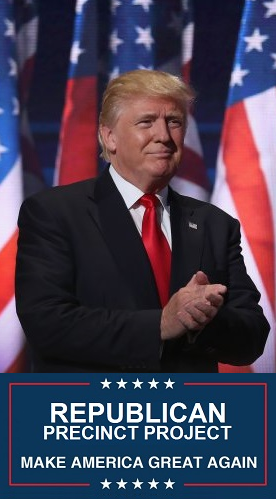By DOUG IBENDAHL • October 21, 2014
Bruce Rauner was given multiple chances during last night’s debate, but he couldn’t name one company he’s owned which has created jobs in Illinois.
Not one.
After the debate I noticed a Facebook friend was wondering why Rauner didn’t name Deerfield, Illinois based pharmaceutical company Ovation Pharmaceuticals, Inc.
It’s certainly true that during Rauner’s chairmanship of GTCR, the private equity firm acquired Ovation in 2002. GTCR sold Ovation in March of 2009 for $900 million to Denmark-based H. Lundbeck A/S. GTCR didn’t disclose how much it made in the deal, but it’s probably safe to assume it was a lot. We do know that GTCR’s original equity commitment was $150 million.
Ovation certainly had a substantial number of employees when Rauner and his GTCR chums controlled the company, so my Facebook friend’s question is a reasonable one.
But there’s a simple reason why Rauner didn’t mention Ovation last night – and never will.
Rauner is never going to brag about his spoils derived from Ovation because in 2008 the Federal Trade Commission took the company to federal court, accusing it of price gouging and violating antitrust laws.
According to the FTC, Ovation acquired control of the only two drugs used to treat heart defects in premature babies. The company then raised the cost of treatment nearly 1,300 percent. (The Star Tribune reported in 2008 that Ovation also bought three other children’s drugs and raised their prices by 864 to 3,437 percent.)
Ovation acquired the rights to a drug developed by Merck & Co. called Indocin I.V. Ovation then acquired the drug NeoProfen from Abbott Laboratories about a year later in 2006. The FTC asserted the NeoProfen acquisition was unlawful because Ovation knew it was getting the only competitor to its Indocin I.V. drug.
The FTC detailed how Ovation quickly raised the price of Indocin from $36 to nearly $500 a vial. The price of NeoProfen was similarly inflated by Ovation.
The FTC brought its complaint in U.S. District Court for the District of Minnesota in 2008. The Minnesota Attorney General joined the FTC as a plaintiff in the lawsuit.
Acting FTC Bureau of Competition Director David P. Wales issued this statement upon announcement of the legal action:
“While Ovation is profiting from its illegal acquisition, hospitals and ultimately consumers and American taxpayers are forced to pay millions of dollars a year more for these life-saving medications. The action taken today is intended to restore the lost competition and require Ovation to give up its unlawful profits.”
The FTC went on to say:
“Indocin and NeoProfen are the only two pharmaceutical treatments sold in the U.S. for a condition known as patent ductus arteriosus, a disorder that primarily affects very low birth- weight premature infants. In babies with this condition, the blood vessel connecting two major arteries of the heart fails to close on its own soon after birth. Patent ductus arteriosus can be fatal if not treated. The only treatment other than drug therapy is surgery, which carries the risk of serious complications and costs far more than treatment with either Indocin or NeoProfen.”
The FTC’s Commissioners approved filing of the federal complaint by a vote of 4-0.
Most devastating of all is this statement from Commissioner Jon Leibowitz (appointed by George W. Bush) who wrote separately:
“Ovation’s profiteering on the backs of critically ill premature babies is not only immoral, it is illegal. Ovation’s behavior is a stark reminder of why America desperately needs health care reform and why vigorous antitrust enforcement is as relevant today as it was when the agency was created almost one hundred years ago in 1914.”
And U.S. Senator Amy Klobuchar (D-Minn) said: “A company like Ovation knows that when it comes to saving a baby’s life, price is no object. They banked on that, literally.”
The District Court dismissed the FTC’s lawsuit with prejudice in August 2010 after a bench trial. The Federal Judge based her ruling on technical arguments related to the definition of the relevant product market. Specifically the court found that evidence presented at trial showed that most doctors made their drug choice for reasons unrelated to cost, “such as perceived differences in the drugs’ safety, differences in side effects, or the presence or lack of long-term studies.”
The FTC appealed but the Eighth Circuit Court of Appeals affirmed the District Court’s dismissal in favor of Ovation (now called Lundbeck, Inc.). The law firm of Cooley LLP has a good summary of the appeal here.
So this is one case where Rauner can truthfully say the entire case was dismissed.
However, Rauner can’t undo what a federal regulatory agency under Republican President George W. Bush said about his company. And while the government wasn’t successful in this particular case, we have a prime illustration of how Bruce Rauner worked hand-in-hand with Big Pharma to keep the price of American health care high.
Courts have an important job to do and they are bound by their own standards of proof and procedure. Courts deal in legality not morality.
Voters on November 4th also have an important job to do. It’s perfectly reasonable for any voter to look at the facts of this case and reach their own conclusion. We won’t be deciding civil liability on November 4. Instead we’ll be choosing which man is best suited to always put the interest of our state’s people first.
In Rauner’s world it’s all about what he can do, instead of what he should do.
Under the Rauner business doctrine desperate parents were forced to pay Rauner’s price to save their critically ill babies. That is a fact and it is undisputed.
It’s beyond disgusting.
Doug Ibendahl is a Chicago Attorney and a former General Counsel of the Illinois Republican Party.
END








